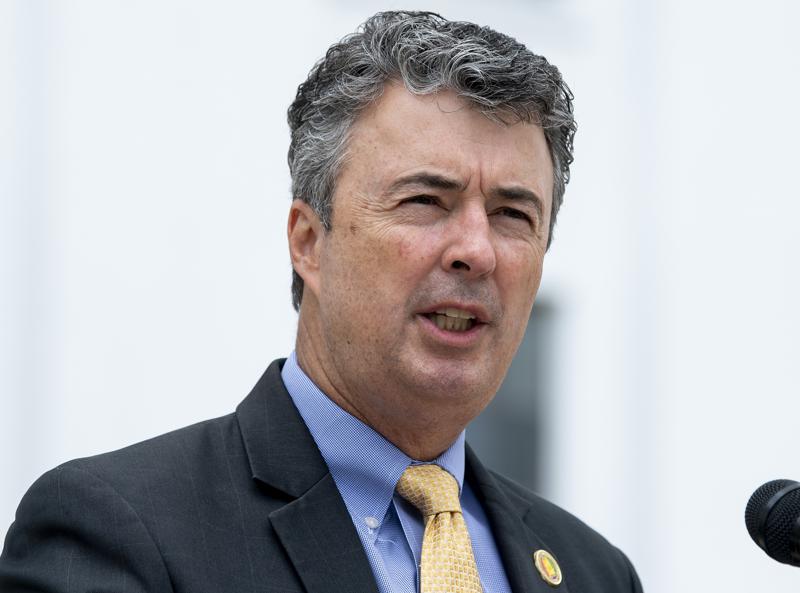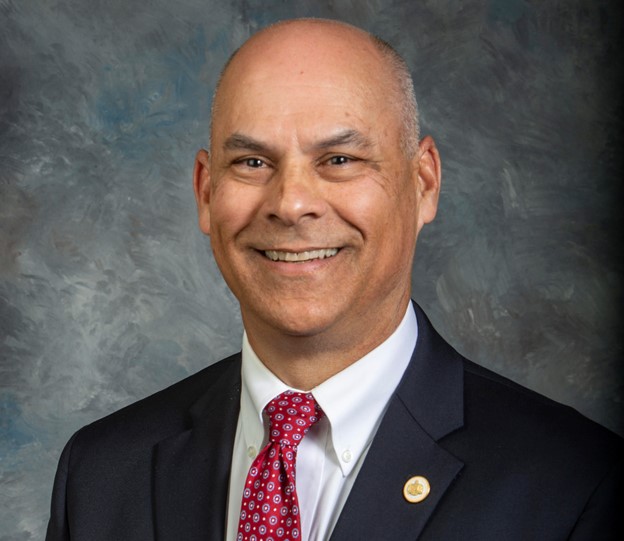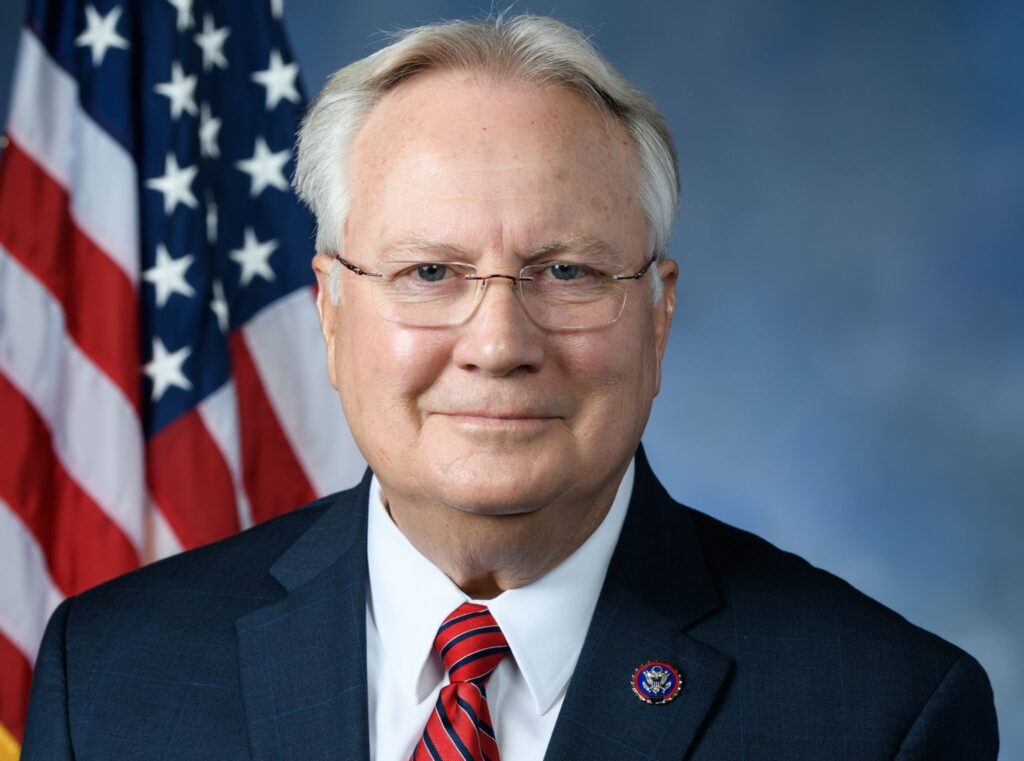A.G. Steve Marshall wins injunction against vaccine mandate

Today, Attorney General Steve Marshall announced victory over President Joe Biden’s federal-contractor vaccine mandate. A federal court granted Alabama’s motion for an injunction against the vaccination requirement. Marshall stated in a press release, “President Biden’s unlawful, unconstitutional, and un-American attempt to force federal contractors and their employees to submit to a COVID-19 vaccination has been stopped due to another successful legal challenge from Alabama.” Marshall filed three legal challenges to President Biden’s vaccine mandates, including against the federal-contractor vaccine mandate on October 29, against the private-employer vaccine mandate on November 5, and against the healthcare-worker vaccine mandate on November 15. All three mandates have now been blocked nationwide by federal courts. “Today’s ruling from the U.S. District Court for the Southern District of Georgia places a nationwide injunction on President Biden’s federal-contractor vaccine mandate and represents the third victory by Alabama and a coalition of states to block enforcement of the President’s tyrannical dictates,” Marshall continued. “President Biden’s lawless and authoritarian vaccine mandate on federal contractors—just as with his vaccine mandates for private employers and healthcare workers—is a contemptible infringement upon individual liberty, federalism, and the separation of powers. The courts have rightfully responded in each case by blocking the enforcement of these mandates.” Gov. Kay Ivey praised the ruling on Twitter. “I’ll call the Biden vaccine mandate nonsense what it is: and that is an un-American, outrageous overreach. This morning we had ANOTHER win in our fight for freedom when a federal judge put a nationwide halt on the federal contractor mandate. Momentum is on our side,” Ivey commented. Attorneys general from Georgia, Idaho, Kansas, South Carolina, Utah, and West Virginia joined the legal challenge.
Kay Ivey taps veteran John Hamm to lead Department of Corrections

Kay Ivey announced Tuesday that she is appointing law enforcement veteran John Hamm to serve as the next commissioner for the Department of Corrections. Hamm is currently the deputy secretary of the Alabama Law Enforcement Agency (ALEA). After almost seven years in his position, Commissioner Jeff Dunn plans to step down at the end of December. Hamm’s appointment is effective January 1, 2022. Ivey praised Dunn for his efforts in improving Alabama prisons. In a press release, Ivey commented, “For decades, the challenges of our state’s prison system have gone unaddressed and have grown more difficult as a result, but after assuming office, I committed to the people of Alabama that we would solve this once and for all. Commissioner Dunn and I have worked together to make many foundational changes, including getting the Alabama Prison Plan moving across the finish line, and I know this critical step will make a difference for decades to come.” Ivey continued, “I have said before that Commissioner Dunn has a thankless job, but I am proud that he has led with the utmost integrity. He has helped lay the groundwork that I now look forward to building upon with John Hamm at the helm.” Hamm has 35 years of law enforcement experience. He was at the helm of the State Bureau of Investigation before serving as deputy secretary of ALEA. His extensive law enforcement background also includes work in corrections, both at the state and local levels. Hamm holds a Bachelor of Science degree in Justice and Public Safety from Auburn University at Montgomery. “Ensuring public safety is at the forefront of our mission when it comes to the Alabama Department of Corrections. From protecting our inmates to correctional staff to the public, that must be a top priority, and we will have a strong leader in John Hamm,” said Governor Ivey. “We have taken important steps, and now, we must build upon those, and John has committed to me that he is prepared to do just that. I am confident in the direction we will take this department in the coming years.” Hamm commented, “I am honored and humbled by Governor Ivey appointing me as commissioner of Corrections. I will work diligently with the men and women of DOC to fulfill Governor Ivey’s charge of solving the issues of Alabama’s prison system.” “Ensuring public safety is at the forefront of our mission when it comes to the Alabama Department of Corrections. From protecting our inmates to correctional staff to the public, that must be a top priority, and we will have a strong leader in John Hamm,” said Governor Ivey. “We have taken important steps, and now, we must build upon those, and John has committed to me that he is prepared to do just that. I am confident in the direction we will take this department in the coming years.”
J. Pepper Bryars: Cancel culture comes to conservative country

The true crime of a censor isn’t muzzling someone’s mouth. It’s muffling everyone else’s ears. That lesson and many others on the importance of free expression and the exchange of ideas were lost recently when Samford University in Birmingham relented to the joint demands of an online petition and its Student Government Association to disinvite historian Jon Meacham from speaking about American history during inauguration ceremonies for the school’s new president. Meacham is well-known for his presidential biographies, and he won the Pulitzer Prize in 2009 for writing American Lion: Andrew Jackson in the White House. But the crime that got him canceled in conservative country? From the petition: “Jon Meacham is significantly involved with the Planned Parenthood organization. He has spoken at their fundraising events, his book is used for the Planned Parenthood fundraiser, and overall his beliefs and core values do not align with those of Samford University, as it is a Southern Baptist institution.” It’s no surprise that Meacham is liberal and pro-choice. Anyone who has ever seen him on cable news mixing his historical perspectives with his personal political preferences knows that. But it’s disheartening to see a conservative campus community adopt the Marxist tactics of the left (and of the Pharisees, by the way) by insisting that unless you share all of their beliefs, you’re unwelcome in their midst, even if only to share your views on an unrelated issue, even if only as a guest, even if only to break bread for an evening. Have we really reached the point in America, and in academia most alarmingly, where in order to gather to discuss a topic, everyone present must already agree on everything? Can we not see that this is a blueprint for ignorance? Meacham wasn’t coming to one of the most conservative campuses in the Bible Belt to advocate for abortion rights. While he is indeed pro-choice, and while he did speak at a Planned Parenthood event, abortion policy isn’t his stock-and-trade. He’s a historian, and as the university noted, his lecture was going to flow from his latest book, The Soul of America: The Battle for our Better Angels, which is, rather ironically, about how our nation has overcome periods of deep, sometimes violent, political and cultural division. But since Meacham’s also pro-choice (along with half of our country, sadly), the petitioners and SGA representatives presumably think he’s not worth hearing from, and also by extension, half of our country isn’t worth hearing from, or talking to, or treating with the same courtesy we’d want from people who hold different beliefs from our own. To place the petitioner’s argument in its best and strongest light, they’re concerned that by giving someone a platform to speak on their campus about American history, who has also been involved with events elsewhere promoting abortion rights, it significantly tarnishes the strong, Christian reputation of Samford and weakens its ability to fulfill its mission. Maybe so, in the minds of some. But if you’re okay with that logic, then you’d also have to be okay with someone who happens to be pro-life being canceled from speaking where their values “do not align” with whatever progressive institution to which they may be invited to speak on an unrelated topic. You’d also have to be okay with Brandeis University disinviting Ayaan Hirsi Ali from its campus because, as a survivor of female genital mutilation and the target of Muslim terrorists, she’s a critic of Islam. You’d also have to be okay with the City of Atlanta sacking its fire chief, Kelvin Cochran, after he wrote about his traditional beliefs on marriage and sexuality in a book for his church’s Bible study class. And you’d also have to be okay with Massachusetts Institute of Technology canceling a lecture from Dorian Abbot, a professor of geophysics at the University of Chicago, simply because he supports merit-based college admissions rather than race-based standards. Canceling someone because they don’t “align” with your tribe is exactly what the far left is doing all across America — in schools, universities, workplaces, clubs, even on sports teams — and their quest for purification and uniformity is making everybody angrier, meaner, and in the end, dumber. And it has to stop. J. Pepper Bryars is a conservative opinion writer from Mobile who lives in Hunstville. Readers can find him at https://jpepper.substack.com.
Jerry Carl introduces legislation to address border crisis

Rep. Jerry Carl has introduced legislation to amend the Immigration and Nationality Act. Specifically, Carl wants to amend certain asylum application procedures. H.R. 5969 – the Border Security Act is National Security Act of 2021 would direct the Attorney General to appoint or hire 200 immigration judge teams to serve in a court in the Southern District of Texas, Southern District of California, Western District of Texas, District of Arizona, or the District of New Mexico. The legislation would require asylum seekers to make claims at a port of entry rather than anywhere along the border. In an op-ed for Yellowhammer News, Carl discussed the new legislation. Carl stated, “These judges would significantly speed up the process of asylum applications so we can quickly and effectively separate the good folks with a legitimate asylum claim from the criminals, drug traffickers, and any others looking to abuse the system. I’m proud of this legislation, and I know this is one way to significantly improve our broken immigration system.” In a press release, Carl stated, “Every month since taking office, President Biden has made the crisis at our southern border worse. This year alone more than 1.6 million illegal immigrants have crossed the border, and many of them are being permanently released into the United States without us having any idea who they are or where they are going. “I’m proud to introduce legislation to address this issue by beefing up our court systems so we can quickly identify and remove criminals and drug traffickers who are attempting to abuse our asylum-seeking process. Border security is national security, and I’m committed to doing all I can to ensure we are protecting the safety and security of Americans all across this country.”
Joe Biden touts savings on insulin and other drugs for Americans

President Joe Biden pledged Monday that his social agenda legislation would deliver tangible savings on prescription drugs for all Americans. Relief that consumers have clamored for is now in sight, he asserted. But first, the bill has to pass Congress, where plenty of obstacles remain in its path. Biden tried to shift the focus to pocketbook provisions overlooked in the political machinations over his $2 trillion legislation, which deals with issues from climate to family life and taxes. Even before concerns over rising inflation, polls consistently showed support from Americans across the political spectrum for government action to lower drug costs. “It’s safe to say that all of us can agree that prescription drugs are outrageously expensive in this country,” Biden said at the White House. “I’m committed to using every tool I have to lower prescription drug costs for Americans consistent with the drug companies getting a fair return on their investment,” he added. But even if Biden and his fellow Democrats succeed in their final push to pass the legislation, a major political difficulty awaits them: Dividends from their prescription drug provisions won’t show up right away, while the pain of rising costs is real and present. Democrats will have to point to promised, not actual, savings in next year’s midterm elections. The biggest policy change — a system for Medicare to negotiate prices for prescription drugs — won’t begin to deliver lower costs until 2025, and then only for a selected set of 10 medicines, as well as insulin products. The number of drugs subject to negotiations would build with time, reaching 100 in six years and continuing to grow by 20 a year. Other provisions would take effect earlier. — Copays for insulin would be limited to $35 a month, starting in 2023. Biden called the high cost of insulin “one of the most egregious examples” of overpriced medicines. He was introduced at the White House by a young woman, Iesha Meza, who couldn’t afford insulin for her Type 1 diabetes and was hospitalized in a coma. — Drugmakers would be required to pay rebates to Medicare if they raise prices faster than inflation, starting that same year. The provision would benefit people with private insurance as well. — Medicare recipients with high drug costs would finally get a cap on their annual financial exposure, $2,000 starting in 2024. — Shingles vaccines and other shots covered under Medicare’s “Part D” pharmacy benefit would be cost-free to consumers, starting in 2024. The social legislation has passed the House and is pending before the Senate, where the goal remains to pass it before Christmas. The powerful pharmaceutical industry is maneuvering to strip out as much as possible of the prescription drug provisions, even block the entire bill. They argue that limits on their ability to set prices would stifle investment that fuels innovation. In a statement following Biden’s speech, Stephen J. Ubl, head of the industry lobby Pharmaceutical Research and Manufacturers of America, said “a damaging bill jammed through a partisan process will not provide patients struggling to afford their medicines meaningful relief.” But a recent overview of the legislation from the nonpartisan Kaiser Family Foundation found that Medicare negotiations would “put downward pressure” on premiums and out-of-pocket costs for seniors, and other provisions of the legislation would also reduce out-of-pocket costs for those who are privately insured. A Kaiser Foundation poll from October found that more than 8 in 10 Americans favor allowing Medicare to negotiate prices, including 95% of Democrats, 82% of independents, and 71% of Republicans. Most in the poll agreed with a statement that “even if U.S. prices were lower, drug companies would still make enough money to invest in the research needed to develop new drugs.” Biden said the industry has lost the pricing debate with the American people. “Diabetes, Alzheimer’s, cancer — so many other diseases. They don’t care whether you are a Democrat or Republican,” said Biden. “We need Congress to finish the job,” he emphasized. Core provisions of the Biden bill draw from earlier legislation that was supported by then-President Donald Trump but failed to advance. Those include the cap on out-of-pocket costs for seniors and penalties on drug companies that raise prices faster than inflation. The $35 monthly copays were also introduced under Trump through regulation, and are now available in a limited though a growing number of Medicare prescription plans. Biden would greatly expand access and benefits. Meanwhile, Medicare recipients are about to get an unwelcome illustration of the impact of high drug costs. About half of next year’s $21.60 increase to Medicare’s “Part B” monthly outpatient premium is due to the program’s need to financially prepare for a pending coverage decision on a $56,000-a-year Alzheimer’s drug called Aduhelm. Notices have already gone out to millions of seniors telling them their cost in January will jump to $170.10. Republished with the permission of the Associated Press.
$1.2M awarded for Alabama-based breast cancer research

More than $1.2 million is being awarded to fund 20 breast cancer research projects across Alabama using money from donations, government, and sales of specialty license plates. The Breast Cancer Research Foundation of Alabama announced the funding Friday for projects at sites including the University of Alabama at Birmingham, Auburn University, the University of South Alabama, the University of Alabama, CerFlux, Southern Research, and the HudsonAlpha Institute for Biotechnology. The grants often are used as seed money for developing studies that are needed to compile data needed for additional funding, according to a statement from the foundation. The foundation said it has provided more than $12 million since 1996. Republished with the permission of the Associated Press.
Legal group puts $100 million toward voter work in South

The Southern Poverty Law Center on Monday announced it is putting $100 million toward an effort to increase voter participation in the Deep South over the next decade. The liberal organization’s Vote Your Voice program supports organizations working in Alabama, Florida, Georgia, Louisiana, and Mississippi. The Community Foundation for Greater Atlanta will administer grants that can be used for civic engagement, build voter engagement ahead of the 2030 redistricting process, and support efforts that help train and launch a new generation of political leaders, a statement said. Margaret Huang, president and chief executive of the SPLC, said Voice Your Vote began as an effort to increase voter registration and turnout, “particularly in communities of color who would most benefit from a true inclusive democracy in the South.” “However, to ensure a government exists that truly is ‘by the people, and for the people,’ we must expand our efforts to push against the anti-democratic statements and actions of many state and local officials in the Deep South,” Huang said. Tax forms show the Montgomery-based nonprofit organization reported $587 million in net assets in January 2020, an increase of nearly $45 million from a year earlier. Several states, including Florida and Georgia, have implemented new voting restrictions that have become the subject of litigation. Republished with the permission of the Associated Press.


